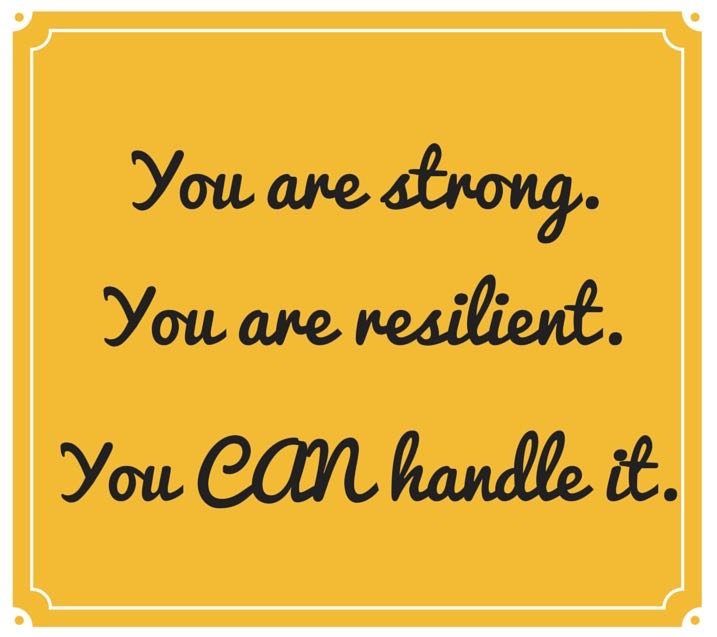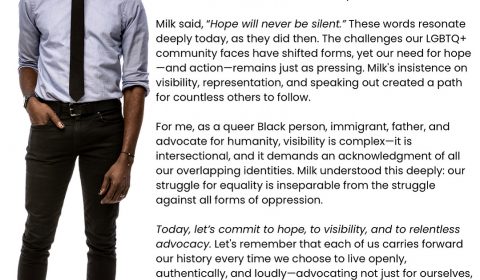Around the cement kitchen counter we pulled up our seats, popped open our beers, and settled in…this, well, we had done this many times before. In this place we, two friends…sometimes with company, explored a variety of topics that were central to the way we lived in the world:
- what it means to be a man
- increased expectations placed on minorities in the workplace–in life overall
- even simple things like why my white friend never thought twice about driving without a driver’s license (yes there is sarcasm)
But it was our conversation around resiliency that connected us.
What is resilience?
The American Psychological Association says “Resilience is the process of adapting well in the face of adversity, trauma, tragedy, threats or significant sources of stress — such as family and relationship problems, serious health problems or workplace and financial stressors. … Being resilient does not mean that a person doesn’t experience difficulty or distress.”
Even though our respective life experiences have been full of challenges/obstacles, again respective to our own experiences, we have been able to persevere in the face of adversity…we have been resilient.
Now, I don’t claim to have the market on advice around this topic–actually I can only share my lived experience and hope others gain some insight. However, in this moment I’ll share wha the American Psychological Association has to say about steps to building resilience.
Make connections. Good relationships with close family members, friends or others are important. Accepting help and support from those who care about you and will listen to you strengthens resilience. Some people find that being active in civic groups, faith-based organizations, or other local groups provides social support and can help with reclaiming hope. Assisting others in their time of need also can benefit the helper.
Avoid seeing crises as insurmountable problems. You can’t change the fact that highly stressful events happen, but you can change how you interpret and respond to these events. Try looking beyond the present to how future circumstances may be a little better. Note any subtle ways in which you might already feel somewhat better as you deal with difficult situations.
Accept that change is a part of living. Certain goals may no longer be attainable as a result of adverse situations. Accepting circumstances that cannot be changed can help you focus on circumstances that you can alter.
Move toward your goals. Develop some realistic goals. Do something regularly — even if it seems like a small accomplishment — that enables you to move toward your goals. Instead of focusing on tasks that seem unachievable, ask yourself, “What’s one thing I know I can accomplish today that helps me move in the direction I want to go?”
Take decisive actions. Act on adverse situations as much as you can. Take decisive actions, rather than detaching completely from problems and stresses and wishing they would just go away.
Look for opportunities for self-discovery. People often learn something about themselves and may find that they have grown in some respect as a result of their struggle with loss. Many people who have experienced tragedies and hardship have reported better relationships, greater sense of strength even while feeling vulnerable, increased sense of self-worth, a more developed spirituality and heightened appreciation for life.
Nurture a positive view of yourself. Developing confidence in your ability to solve problems and trusting your instincts helps build resilience.
Keep things in perspective. Even when facing very painful events, try to consider the stressful situation in a broader context and keep a long-term perspective. Avoid blowing the event out of proportion.
Maintain a hopeful outlook. An optimistic outlook enables you to expect that good things will happen in your life. Try visualizing what you want, rather than worrying about what you fear.
Take care of yourself. Pay attention to your own needs and feelings. Engage in activities that you enjoy and find relaxing. Exercise regularly. Taking care of yourself helps to keep your mind and body primed to deal with situations that require resilience.
Additional ways of strengthening resilience may be helpful. For example, some people write about their deepest thoughts and feelings related to trauma or other stressful events in their life. Meditation and spiritual practices help some people build connections and restore hope.
The key is to identify ways that are likely to work well for you as part of your own personal strategy for fostering resilience. Read more from the American Psychological Association here.

I believe, we HAVE to bounce back. We have to move forward. We have to be resilient. If the meaning of our lives is to be happy then it is through the mastery of resilience that one will ultimately be able to achieve happiness. Simply because our lived experiences have shown us that the path to true happiness is riddled with challenges that will require our resilience.
Our kitchen counter conversations were part of our process of being resilient. I say were because my friend has moved away and our conversations are no longer around the kitchen counter–they happen over text.








